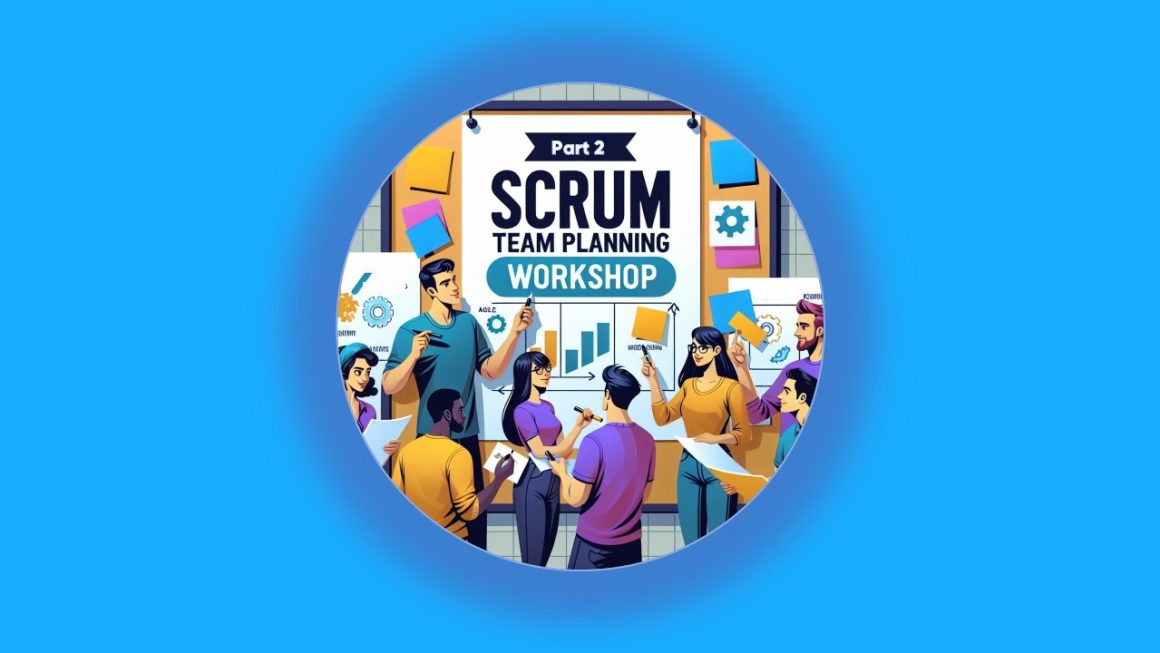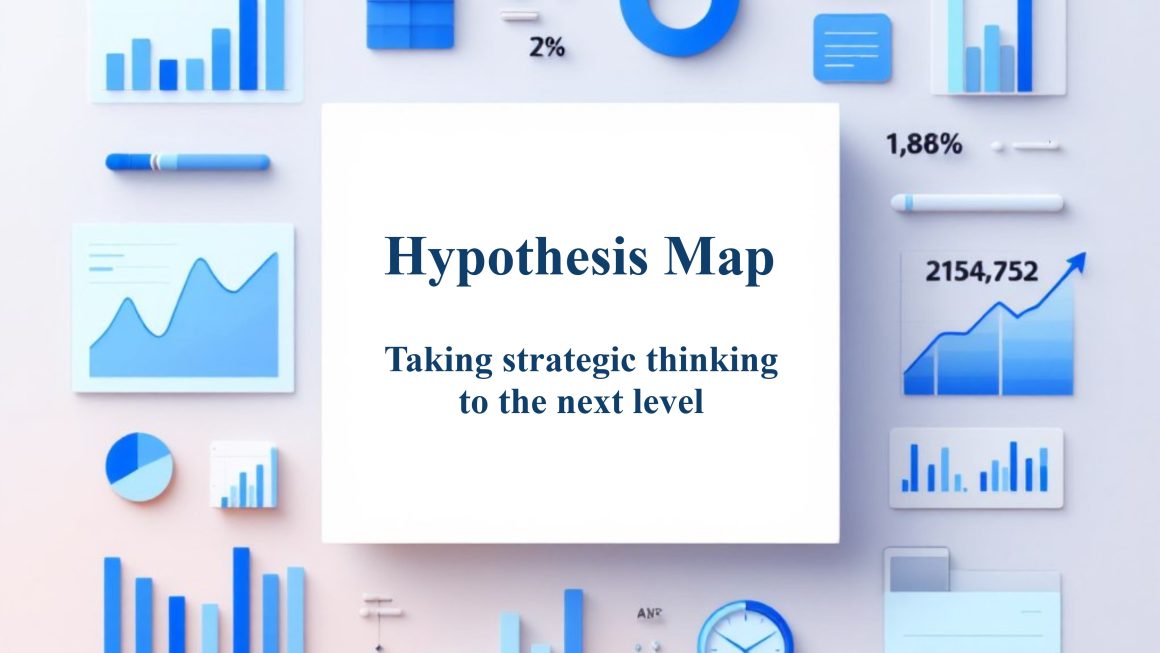As promised I am glad to share with you the second workshop from the series “Improving Sprint Planning”. The post about the first workshop is available here
At the first meeting the team used various tools and exercises to formulate a real Sprint goal, which they would work towards in the coming Sprint.
Now, the goal of the second workshop is to reflect on how the team has handled the Sprint, based on the formulated goal. We aim to gather diverse opinions and thoughts. For this you will prepare a slide with the Sprint Goal, which will look as follows:
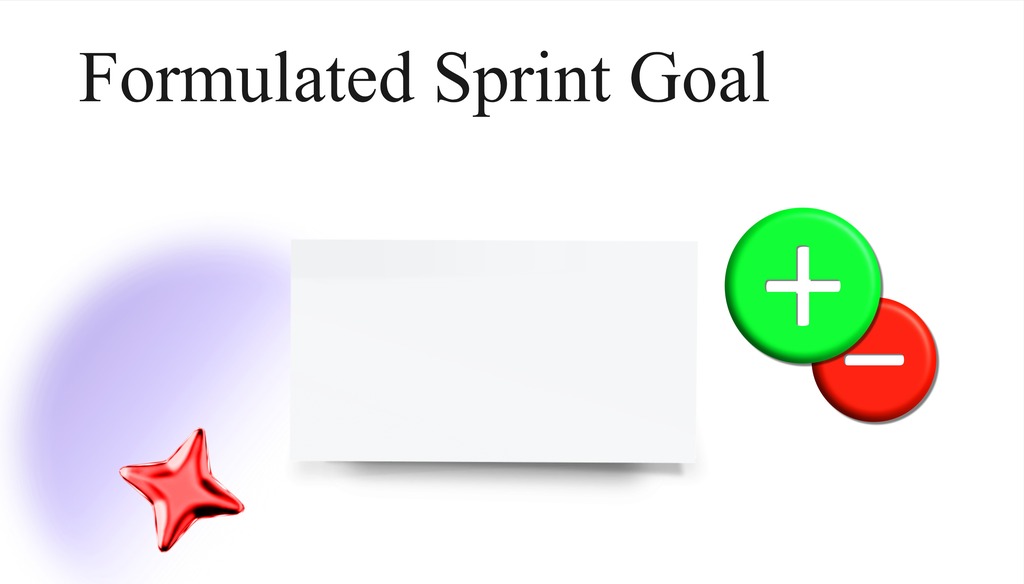
And one more slide for gathering the team’s opinions:
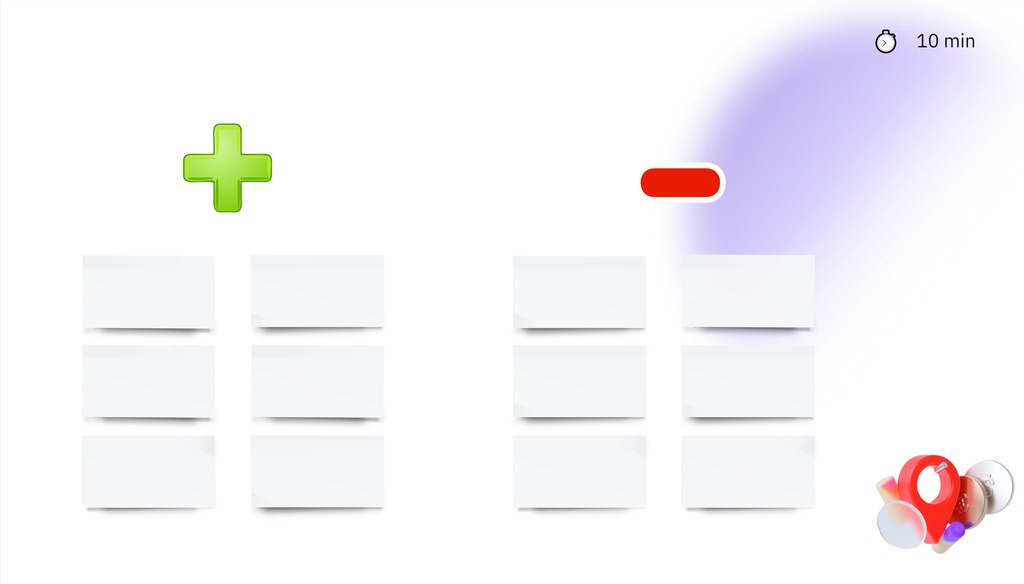
For two minutes team members write down their thoughts on sticky notes, after which you discuss them. Then you act based on the situation:
– It may be necessary to repeat the exercises to formulate a new Sprint Goal.
– However, if everything is going well and the team is ready to formulate the Goal for the new Sprint on their own — great! In that case we can move on to the next step of the second workshop — training on task estimation.
Once you have discussed all aspects related to the Sprint Goal, and if the need to repeat the first workshop has been eliminated, you will focus on estimating the tasks you plan to take on in the Sprint.
Let’s start with a warm-up exercise. Our task is to estimate the time required to paint an elephant pink.
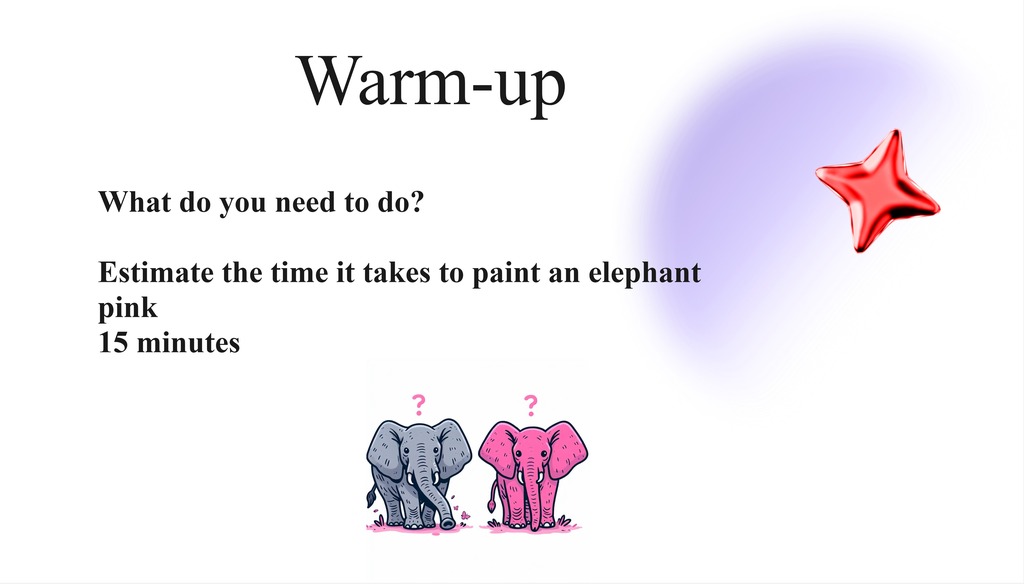
You need to prepare a slide with an explanation of this exercise and will definitely vocalize it to ensure that all participants clearly understand the task.
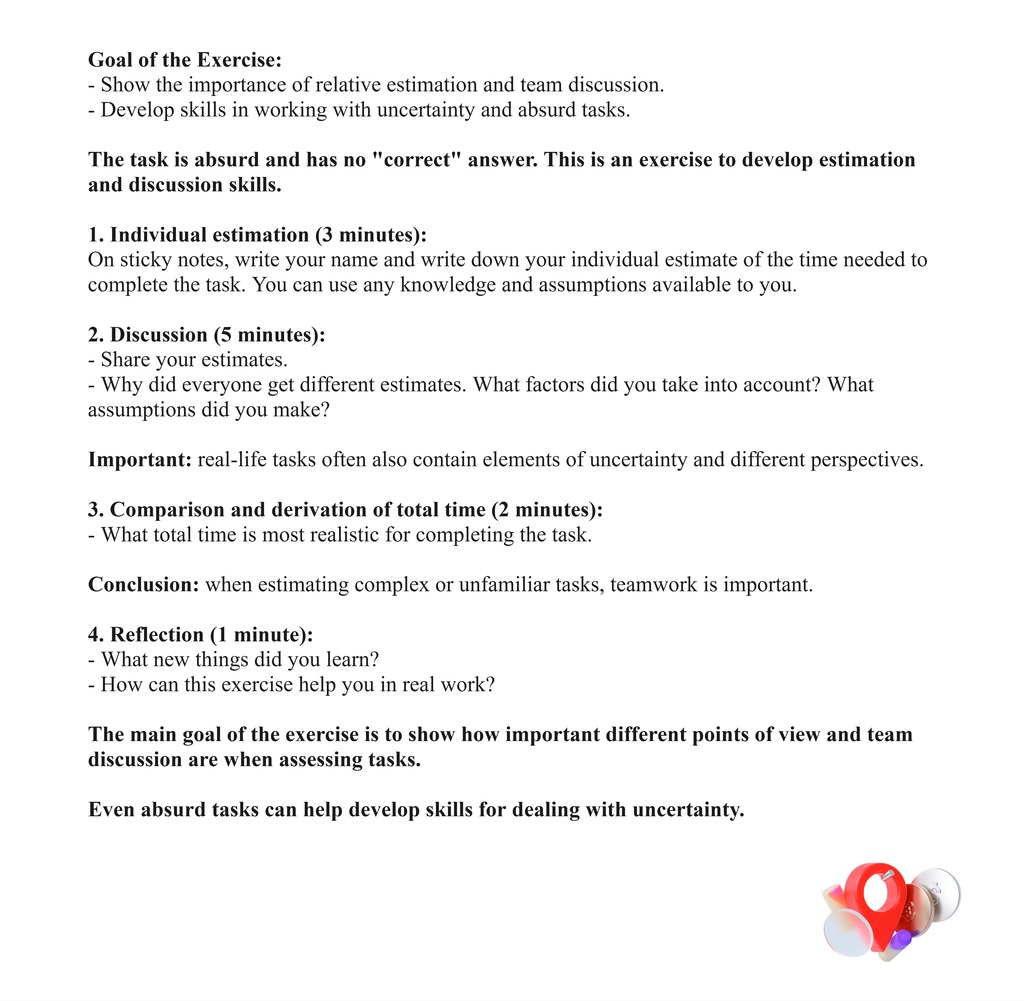
Goal of the Exercise:
– Show the importance of relative estimation and team discussion.
– Develop skills in working with uncertainty and absurd tasks.
The task is absurd and has no “correct” answer. This is an exercise to develop estimation and discussion skills.
1. Individual estimation (3 minutes):
On sticky notes, write your name and write down your individual estimate of the time needed to complete the task. You can use any knowledge and assumptions available to you.
2. Discussion (5 minutes):
– Share your estimates.
– Why did everyone get different estimates. What factors did you take into account? What assumptions did you make?
Important: real-life tasks often also contain elements of uncertainty and different perspectives.
3. Comparison and derivation of total time (2 minutes):
– What total time is most realistic for completing the task.
Conclusion: when estimating complex or unfamiliar tasks, teamwork is important.
4. Reflection (1 minute):
– What new things did you learn?
– How can this exercise help you in real work?
The main goal of the exercise is to show how important different points of view and team discussion are when assessing tasks.
We pay attention to the fact that even absurd tasks can help develop skills for dealing with uncertainty.
Here’s how my slides for the team’s work look:
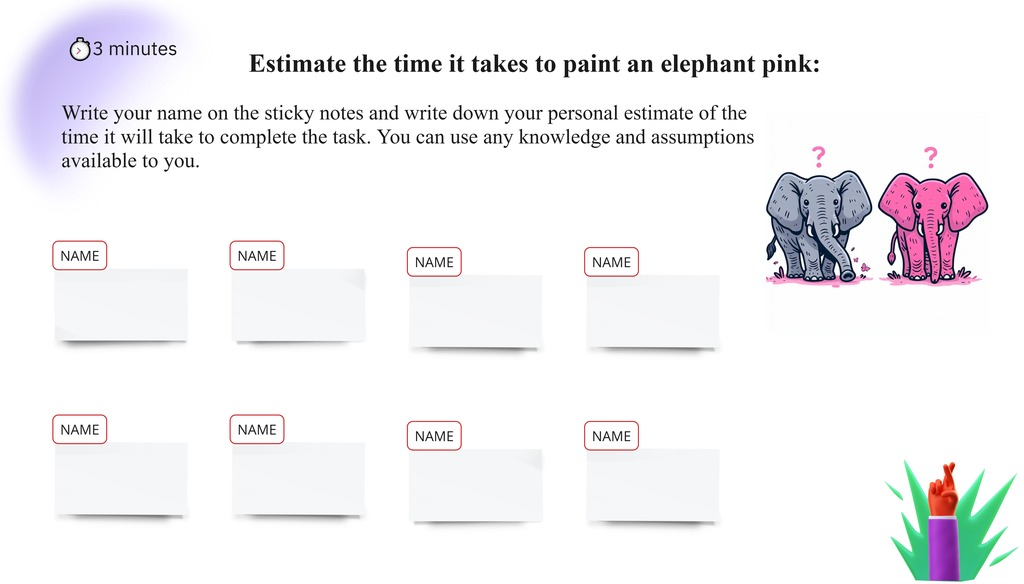
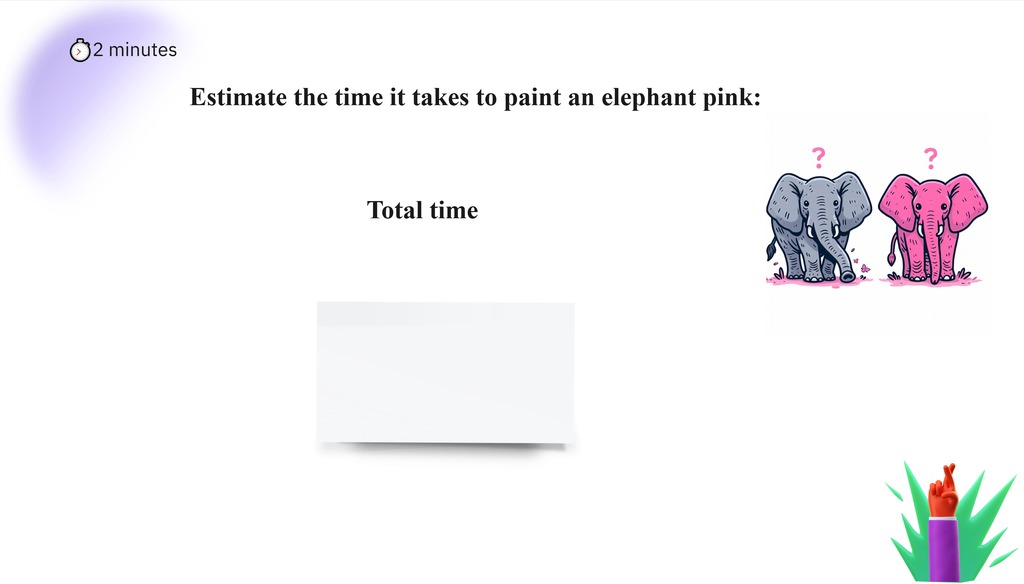
Then, if time permits, you can hold a Q&A session. And to conclude the workshop, you should gather feedback from the participants.
Have you prepared and conducted anything similar in your teams? Please share your experience — I’m very curious!
If you have any questions or need assistance in preparing such a workshop, I would be happy to help and answer all your questions.
Do not hesitate to contact me on Telegram or at LinkedIn – just click one of these words.

